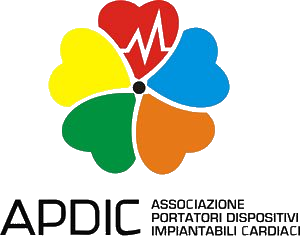Cardioverter-Defibrillator (ICD)
Urgent situations can be either clinical events or device-generated alerts
Pacemaker dependent patients should refer to the same suggestions reported above for Pacemaker. CRT-D recipients should also refer to the same recommendations as for CRT-P recipients.
The most unpleasant symptoms are those elicited by the delivery of shocks (high voltage pulses). The occurrence of shock delivery may be:
- appropriate to terminate fast and life-threatening Ventricular Arrhythmias
- inappropriate when it is triggered by Supraventricular Arrhythmias, self-terminating arrhythmias, or non-cardiac signals.
In the event of ventricular arrhythmia symptoms ranging from palpitation to light-headedness to syncope can occur. Do not panic: the ICD has just proved to be a life-saving device !!
In the case of a single shock, the referring physician/centre shall be informed in the next few days, whereas in the event of frequently recurring shocks medical intervention is needed on an urgent basis. Many transient factors or new-onset situations may need appropriate therapeutic intervention: potassium loss, fever, pneumonia, acute coronary syndrome, heart failure.
Inappropriate shock delivery accounted up to 30 % in the past decade; nowadays they are greatly decreased owing to automatic algorithms that can effectively
- discriminate Supraventricular Arrhythmias
- prevent shocks related to lead integrity issues
- manage double counting of the cardiac signals
- detect self-terminating Ventricular Arrhythmias
Nowadays inappropriate shocks may be safely reduced to 5% by accurate ICD programming. Some situations are still at risk of inappropriate shock delivery :
- Atrial Fibrillation/Tachycardias fast and regular conduction to the ventricles can fool discrimination algorithms in some cases. Avoid physical exercise (preferably lay supine and try relaxation) and seek medical intervention to manage these arrhythmias
- Sinus Tachycardia is the normal, fast rhythm that occurs during exercise, psychological stress or during an acute illness. Stop the exercise and try relaxation. ICD reprogramming usually fixes this unwanted effect.
- Non-Sustained VT relapsing one after each other in a few seconds: automatic detection or reprogramming to a longer detection time.
- Misdiagnosis due to detection of non-cardiac signals : lead integrity issues, electromagnetic interferences, detection of the repolarisation signal. Avoid physical exercise and the use of electronic tools. Urgent device check is mandatory.
The placement of a magnet over the ICD can stop the delivery of inappropriate shocks owing to the suspension of arrhythmia detection. This suspension is transient: as soon as the magnet is removed, detection resumes, and treatment can be delivered within a few seconds in the event an Arrhythmia is detected. The placement of a magnet is customary in hospital or in ambulatory practice to carry out all the medical procedures at risk of EMI.
Placement of a magnet to stop inappropriate shocks can be safely performed while observing the ICD recipient. In the event of new symptoms that might be suggestive of a Ventricular Tachyarrhythmia, remove the magnet: the ICD will resume its normal activity and will treat the arrhythmia within a few seconds.
ICD Alerts. ICDs are equipped with audible or vibratory alerts that automatically warn important events. Alerts on lead integrity and Elective Replacement Indicator (ERI) are usually turned ON. Programmable alerts can also be set for Atrial Fibrillation/Tachycardias duration or Heart Failure indicators, so that timely therapeutic interventions can be delivered to the patients. Alerts provide daily warning: contact with the referring physician/centre should be established in the next 24-72 hours.
Remote device monitoring has made possible the automatic transmission of Alert warnings to the centre in charge of follow up, so that health care personnel can be reliably notified regardless of the capability of the ICD recipient to detect and to report the Alert signal.
